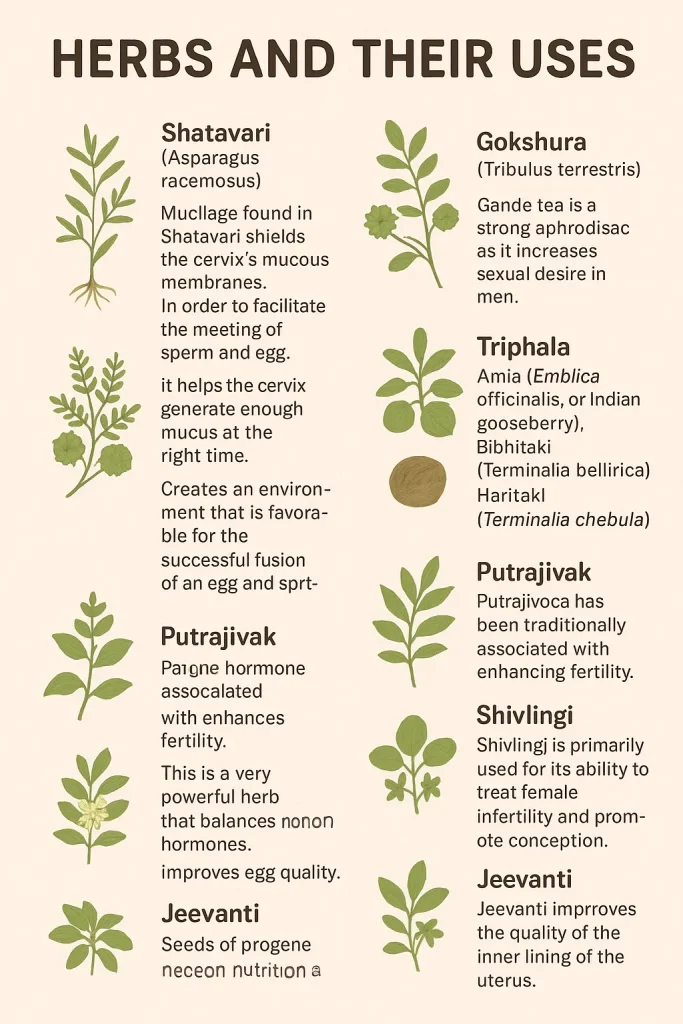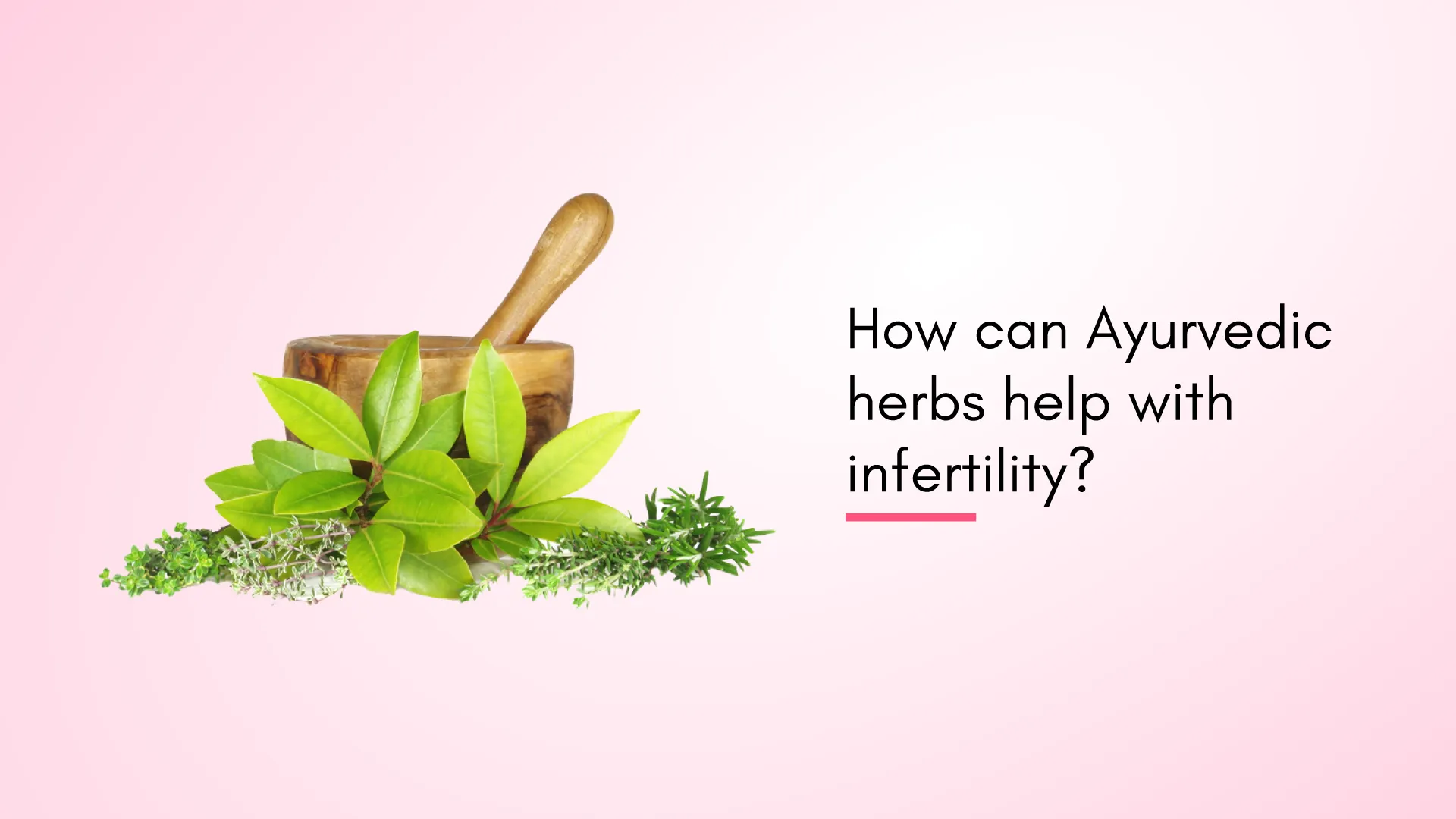Ayurvedic Perspective on Fertility
Every couple has the most distressing period of their lives when they are faced with infertility. Many couples try different treatment approaches one after another to fulfill their dream of getting pregnant. Couples deal with the distressing condition of infertility, which affects not only their physical and emotional health but also their financial situation.
Struggling to conceive? Check our IVF Treatment Cost and Success Rates to plan your journey.
A promising and affordable treatment option for infertility issues is ayurvedic management, which also improves the success rates of in vitro fertilization (IVF), particularly in cases where prior attempts at IVF have failed. Ayurveda’s comprehensive approach seeks to determine the underlying reason for infertility and ensures that these problems are addressed through the use of herbal remedies, treatments, dietary adjustments, and lifestyle modifications. Treatments with Ayurveda are tailored according to each couple’s medical history and their specific fertility issue.
The problem of infertility is fairly common nowadays, and it has become the need of the hour to find a solution which is having less complications & affordable. Ayurvedic background about the importance of infertility treatment is fully explored in ancient literature Atharvana Veda.
Role of Ayurveda in the Journey of Motherhood
Ayurveda has great potential to address fertility-related issues. The effective way to treat infertility is to combine the right Ayurvedic herbs and a healthy diet.
Causes of Infertility
Infertility can stem from various factors affecting males and females, often involving complex biological processes.
Male infertility
- Varicocele
- Infection
- Ejaculation issues
- Antibodies that attack sperm
- Tumors
- Undescended testicles
- Hormone imbalances
- Defects of tubules that transport sperm, etc
Female infertility
- Cervical mucus issues.
- Endometriosis.
- Damage to the fallopian tubes.
- Poor nutrition.
- Polycystic ovary syndrome.
- Uterine fibroids, etc
Suggested Read: Understanding The Role Of Hormonal Imbalances In Female Infertility
Explore our Infertility Treatments
IUI Treatment
IVF Treatment
ICSI Treatment
PISCI Treatment
Genetic Testing
Fertility Preservation
Blastocyst Culture
In Ayurveda
- Abnormal function in the body is agnimandya (vitiation of the digestive fire of the body)
- Tridosha dushti (vitiation of three governing factors of the body)
Common Ayurvedic Herbs for Infertility

Here are some common Ayurvedic herbs for infertility.
- Ovulation disorder -Ashoka, Dashmoola, Shatavari, Aloe vera, Guggulu etc.
- Premature ovarian failure (POF) – Ashoka, Dashmoola, Shatavari, Guduchi, Jeevanti, etc.
- Blocked fallopian tubes, adhesions (scar tissue) and pelvic inflammatory
disease – Guduchi, Punarnava, etc.
Its potential influence on cortisol levels might lead to a healthier menstrual cycle.
Suggested Read: Menstrual Cycle and Fertility
Herbs and Their Uses
Shatavari (Asparagus racemosus)
Mucilage found in Shatavari shields the cervix’s mucous membranes. In order to facilitate the meeting of sperm and egg, it helps the cervix generate enough mucus at the right time. Shatavari also aids in the removal of harmful and toxic substances from the body and in creating an environment that is favorable for the successful fusion of an egg and sperm.
Gokshura (Tribulus terrestris)
Gokshura is thought to be a strong aphrodisiac, as it increases sexual desire in men. Gokshura contains active phytochemicals that raise testosterone levels and enhance sperm quality and quantity. When taking Gokshura, menopausal symptoms such as vaginal dryness, poor libido, mood swings, irritability, hot flashes, and night sweats were less common. Hence, it is also used in treating PCOS cases.
Triphala
- Amla (Emblica officinalis, or Indian gooseberry)
- Bibhitaki (Terminalia bellirica)
- Haritaki (Terminalia chebula)
These are all called Triphala. The remedy, which is made out of three distinct fruits baheda, amla, and haritaki, strengthens the immune system, helps the body rid itself of impurities, and removes obstructions in the fallopian tubes. Moreover, Triphala can enhance female fertility and hormone regulation. Triphala is commonly used in Ayurveda for a variety of health conditions. It is the best combination for uterine detox.
Putrajivak
Putrajivaka has been traditionally associated with enhancing fertility big time. This is a very powerful herb that balances hormones, improves egg quality, and ensures strong and healthy implantation.
Shivlingi
Shivlingi is primarily used for its ability to treat female infertility and promote conception. The seeds of the plant have properties that help improve the egg quality, which is a great concern today.
Jeevanti
Jeevanti is great at improving the quality of the inner lining of the uterus. It ensures that the embryo gets proper nutrition after implantation.
Ashwagandha
Ashwagandha balances hormones and works as a uterine tonic, strengthens uterine muscles, improves egg quality, improves libido, reduces stress, and improves reproductive health.
Note: No individual herb alone is considered useful for promoting fertility. Therefore, a combination of herbs is used in the treatment of infertility with the purpose of correcting an organic or functional problem that causes infertility.
Ayurvedic Herbal Formulations
The most commonly known, popular, and widely used herbs like Amalaki (Emblica officinalis), Shatavari (Asparagus racemosus), and Ashwagandha (Withania somnifera) are incredibly helpful formulas that support the creation of a synergistic hormonal balance between the luteinizing hormone (LH) and the follicle-stimulating hormone (FSH).
An optimal blend of herbs can help with menstrual cycle regulation, overall health and wellness enhancement, sperm revitalization (a man’s sperm count, morphology, and motility are improved), stress reduction, improved sleep, anxiety management, and energy production. It can also balance the endocrine system and improve blood flow in the pelvic cavity, thus contributing to increased fertility.
Dashamoola
A popular Ayurvedic medicine called Dashamoola is made from the roots of 10 distinct plants.
Dashamoola is said to be the best treatment option for treating cervicitis. Dashamoola has antibacterial and analgesic properties. It can help lessen vaginal itching and discharge. Since Dashamoola balances hormone levels, it can be used to treat irregular periods, menstrual problems, and infertility in women. After childbirth, women can regain their health, improve their energy, clear the uterus, and aid in the restoration of tissue and muscular strength with the help of Dashamoola formulation.
How Ayurvedic Herbs Support Reproductive Health?
Ayurveda says that the soil in which a seed is planted must be well-nourished and cared for; hence, a healthy mother’s and father’s reproductive systems are essential to conception and the birth of a child. Therefore, preconception care for parents is highly valued in Ayurveda. To improve the reproductive health of the mother and father and ensure that the sperm, egg, and mother’s womb are in optimal condition, it is thought that a minimum of three months and an ideal period of twelve months are required.
A variety of herbs used in Ayurvedic treatment are believed to enhance fertility. As previously said, these herbs should be used for three to twelve months. These herbs,
- Boost blood flow to the fallopian tubes, ovaries, and uterus
- Break the adhesion and scar tissue in the fallopian tubes
- Provide new eggs and oxygen-rich blood, which will support and improve their health
- Boost the amount, quality, and motility of sperm
- Reduces erectile dysfunction and anxiety
- Regulates the amount of hormone produced between the pituitary, hypothalamus, and ovaries to promote hormonal equilibrium
- Incorporate holistic and natural assistance throughout your reproductive journey
Integrating Ayurvedic Herbs with Modern Treatments
Ayurveda treats and prevents a wide range of illnesses by using various herbs and natural therapies. For infertile couples, including Ayurveda in treatment plans, provides a safe, natural, and affordable alternative. Combining contemporary medications with Ayurvedic herbal remedies might provide patients with more treatment alternatives, minimize side effects, and improve overall therapeutic results. It also provides a holistic approach, providing a beneficial add-on to support reproductive technologies.
Conclusion
Ayurveda promotes health by enhancing the body’s natural balancing and self-healing processes rather than depending on external substances to replace or adjust the hormones in the body. It focuses on treating infertility holistically with the goal of enhancing the person’s general health and quality of life.





























